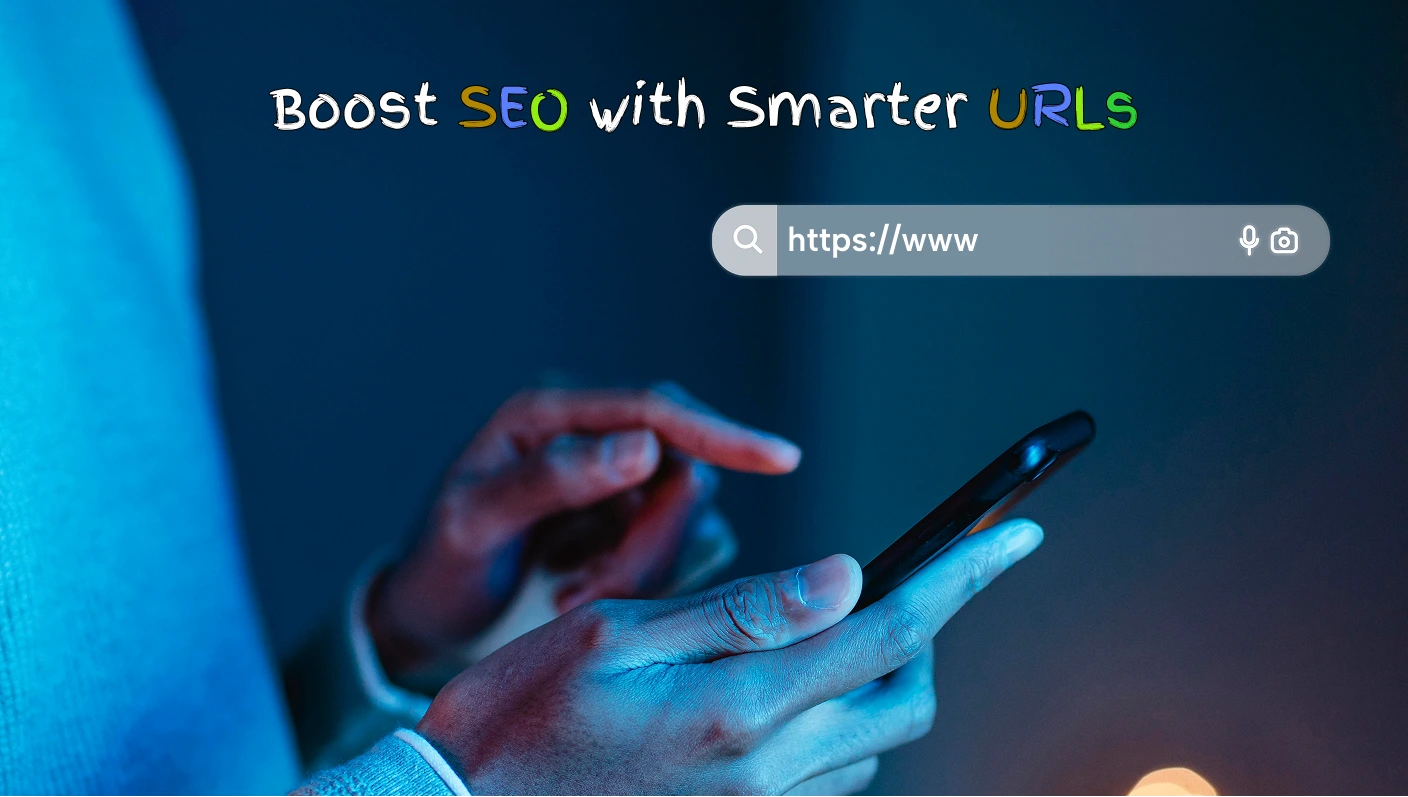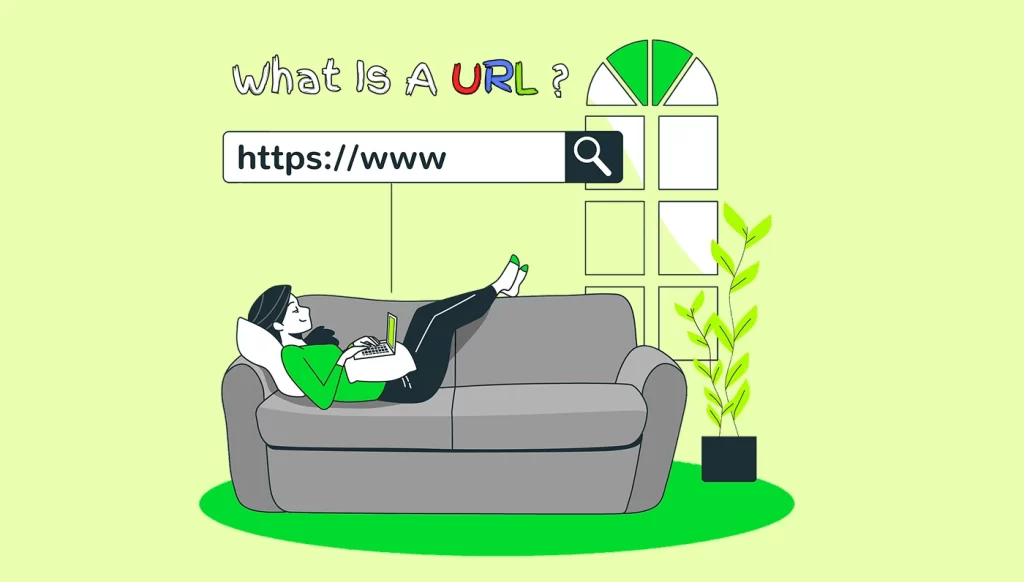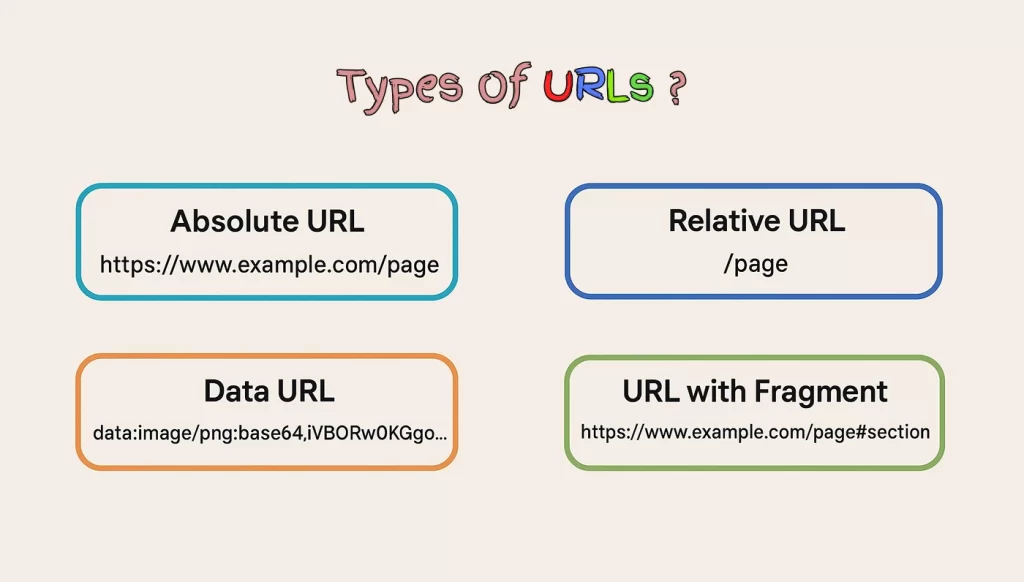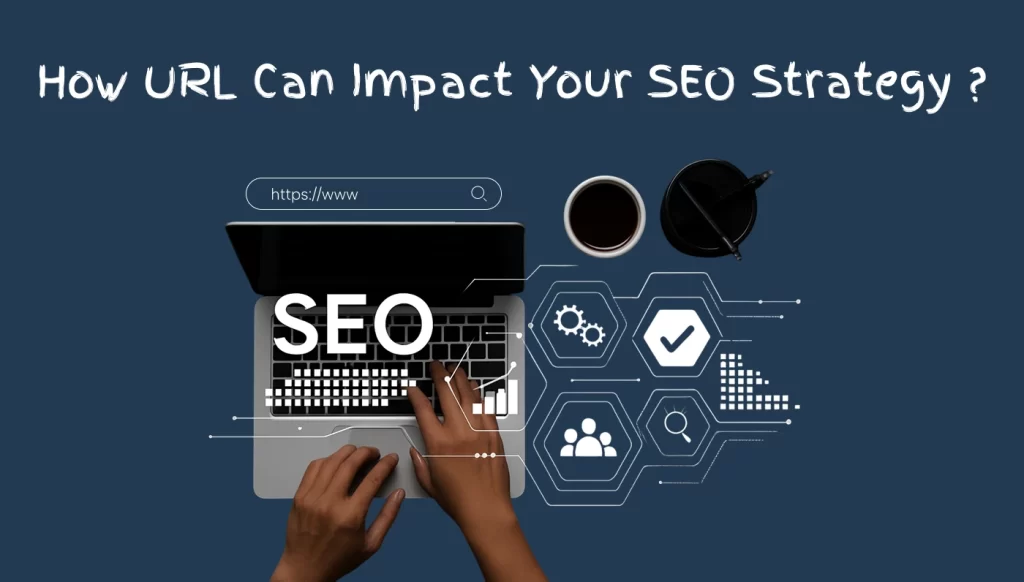The SEO Power of URLs: Common Pitfalls and Smart Fixes

You’re browsing for leather boots. One has a crystal-clear sign: “Handmade-Leather-Boots”
The one next to it just says: “productpage?id=92734948.”
Which one are you likely to click into?
First one? Right
Ask yourself- Why?
The answer would be loud and clear because it’s clear, intentional, and relevant.
Now, if the human mind loves clarity, so do the search engines.URLs might look small, but they’re mighty. They guide Google and your audience.
But exactly what is a URL, and why does it matter in your SEO strategy?

What Is A URL?
A URL, or Uniform Resource Locator, is a web address that guides search engines and users to specific information online. It serves as a precise locator, helping individuals find the exact content they’re looking for.
In essence, it acts as the backbone of web navigation, bridging the gap between servers and users to identify and deliver web pages and files with complete efficiency.
To fully understand a URL, let’s break down its key components.
Protocol: Specifies how data is transferred between the browser and server.
➤ Example: https:// (Secure connection)
Domain Name: Identifies your website’s main address.
➤ Example: seobooklab.com
Path: Points to a specific page or section within the website.
➤ Example: https://seobooklab.com/insights/
Query Parameters(optional): Adds extra info for searches, filters, or tracking.
➤ Example: https://seobooklab.com/contact

Types Of URLs
URLs come in various types, each with its characteristics. Here are some common types
Absolute URLs
These include all the necessary components, such as protocol, domain, and path, ensuring the link works smoothly across different websites. They’re mostly used for external linking because they make sure users land exactly where they’re supposed to.
Relative URLs
They don’t contain all the necessary components, like protocol or domain. They’re generally used for internal linking within the same website, which makes them shorter and easier to manage.
Canonical URLs
When you have multiple pages with similar or duplicate content, a canonical URL tells search engines which version is the “main” one. This helps consolidate SEO value and avoids confusion in rankings.
Callback URLs
It redirects the user to a certain page after a task is completed, such as logging in or making a payment. It keeps the process smooth and user-friendly.
Vanity URLs
They are primarily used for promotional materials, making them visually appealing and easy to remember. These are short, branded, and clean-looking links helping to improve user engagement.

How URL Can Impact Your SEO Strategy?
Nearly 2,52,000 websites are created daily, which means that every new website created has to suffer a lot to stand out in this digital marketplace.
A properly organized website not only looks visually appealing but also acts as an entry point to enhance visibility and user interaction.
Enhanced User Experience
A well-designed URL provides a clear indication to users and search engines regarding what the destination page is all about. For example, have a look at the image below

Even if someone skips reading the title tags or the meta description but the URL indicates this page is about SEO.
And that matters. Because when your audience knows what to expect, they’re far more likely to click. Clarity leads to confidence, and confidence leads to conversions.
SEO Advantage
Sure, URLs might not be the biggest ranking factor, but don’t underestimate their influence.
They contribute to your domain’s overall authority and help search engines better understand the page context.
Including a relevant keyword in your URL can subtly boost visibility.
Take this, for example:
Now, imagine someone Googling “duplicate content SEO impact”. This article will pop up. It’s clean, keyword-aligned, and instantly tells both Google and the user this is what you are looking for.
Role In Professional Impression
Your URL is often the first thing people see, and a first impression matters. If it is memorable, it will establish brand authority and credibility.
It sticks in people’s minds, making it easier for them to come back when they need you.
On the flip side? A confusing or clunky URL can create doubt, feel unprofessional, and push potential customers away before they even click.
Best Practices for SEO-Friendly URLs
To make your URLs SEO-friendly, here are some quick and effective tips:
- Use relevant keywords to clearly describe the page and help both users and Google bot understand your content.
- Maintain a consistent URL structure to make your site easier to navigate and crawl.
- Secure your URLs with HTTPS to protect user data and boost trust signals.
- Always use 301 redirects when changing or removing URLs to preserve SEO value.
- Keep URLs short, clear, and clean — avoid unnecessary hyphens, symbols, or parameters that clutter the link.
Common URL Mistakes To Avoid
- Don’t Implement Long URLs
Long URLs are hard to read, harder to remember, and can look sketchy to users. The more complex they appear, the less trustworthy they feel.
Quick Fix Tip: Remove unnecessary words, characters, or hyphens that add zero value.
- Don’t Include Irrelevant Parameter
URLs like productpage?id=92734948 don’t tell Google — or users — anything useful. They look messy, and you seem like“amateur.”
Quick Fix Tip: Use clean, keyword-rich paths that clearly describe what the page is about.
- Neglecting HTTPS
Still running on HTTP? That’s a red flag. It signals a lack of security, and both users and Google notice.
Quick Fix Tip: Always use HTTPS to encrypt user data and build instant trust.
- Frequent URL Changes Without Redirects
Changing URLs without setting up proper 301 redirects is like sending users into a black hole. It breaks links, hurts SEO, and frustrates your audience.Quick Fix Tip: If you update a URL, make sure a 301 redirect points to the new one always.
To Conclude,
A well-structured URL does far more than direct traffic — it reinforces user trust, elevates SEO performance, and strengthens your brand’s digital identity. Clean, strategic URLs not only improve crawlability and indexing but also create a seamless experience that users remember. By steering clear of common pitfalls and embracing expert-led optimization, you future-proof your site’s visibility and usability.
Crafting impactful URLs isn’t just technical work — it’s a strategic move best made with the right guidance behind you.No more guesswork. Just results. Connect with SEOBookLab now.

